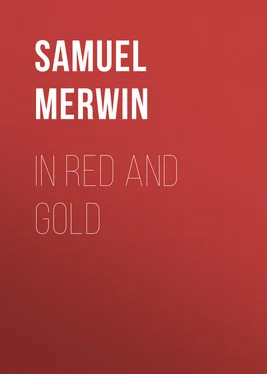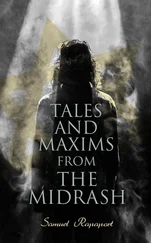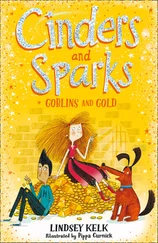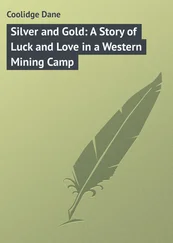Samuel Merwin - In Red and Gold
Здесь есть возможность читать онлайн «Samuel Merwin - In Red and Gold» — ознакомительный отрывок электронной книги совершенно бесплатно, а после прочтения отрывка купить полную версию. В некоторых случаях можно слушать аудио, скачать через торрент в формате fb2 и присутствует краткое содержание. Жанр: foreign_prose, на английском языке. Описание произведения, (предисловие) а так же отзывы посетителей доступны на портале библиотеки ЛибКат.
- Название:In Red and Gold
- Автор:
- Жанр:
- Год:неизвестен
- ISBN:нет данных
- Рейтинг книги:3 / 5. Голосов: 1
-
Избранное:Добавить в избранное
- Отзывы:
-
Ваша оценка:
- 60
- 1
- 2
- 3
- 4
- 5
In Red and Gold: краткое содержание, описание и аннотация
Предлагаем к чтению аннотацию, описание, краткое содержание или предисловие (зависит от того, что написал сам автор книги «In Red and Gold»). Если вы не нашли необходимую информацию о книге — напишите в комментариях, мы постараемся отыскать её.
In Red and Gold — читать онлайн ознакомительный отрывок
Ниже представлен текст книги, разбитый по страницам. Система сохранения места последней прочитанной страницы, позволяет с удобством читать онлайн бесплатно книгу «In Red and Gold», без необходимости каждый раз заново искать на чём Вы остановились. Поставьте закладку, и сможете в любой момент перейти на страницу, на которой закончили чтение.
Интервал:
Закладка:
“If you are telling me the truth,” said the mate.
– “I am. I tell you I am.”
“ – Then you should have no difficulty in stopping. It would take a few weeks to form the habit. You can’t smoke another pipe on this boat.”
“But what right – good lord, if the pater would drag me out here, away from all my friends… you think I’m a rotter, don’t you!”
“My opinion is not in question. I must ask you to give me, now, whatever opium you have.”
Slowly, moodily, evidently dwelling in a confusion of sulky resentful thoughts, the boy knelt at the cupboard and got out a small card-board box.
The mate opened it, and found several shells of opium within. He promptly pitched it out over the rail.
“This is all?” he asked.
“Well – look in there yourself!”
But the mate was looking at the suit-case, and at the trunk beneath the lower berth.
“You give me your word that you have no more?”
“That’s – all,” said the boy.
The mate considered this answer; decided to accept it; turned to go. But the boy caught at his sleeve.
“You do think I’m a rotter!” he cried. “Well, maybe I am. Maybe I’m spoiled. But what’s a fellow to do? My father’s a machine – that’s what he is – a ruthless machine. My mother divorced him ten years ago. She married that English captain – got the money out of father for them to live on, and now she’s divorced him. Where do I get off? I know I’m overstrung, nervous. I’ve always had everything I want. Do you wonder that I’ve begun to look for something new? Perhaps I’m going to hell. I know you think so. I can see it in your eyes. But who cares!”
Doane stood a long time at the rail, thinking. The ship’s clock in the social hall struck eight bells. Faintly his outer ear caught it. It was time to join his excellency.
CHAPTER III – MISS HUI FEI
THE luncheon table of his excellency was simply set, with two chairs of carven blackwood, behind a high painted screen of six panels. It was at this screen that the first mate (left by a smiling attendant) gazed with a frown of incredulity. Cap in hand, he stepped back and studied the painting, a landscape representing a range of mountains rising above mist in great rock-masses, chasms where tortured trees clung, towering, lagged peaks, all partly obscured by the softly luminous vapor – a scene of power and beauty. Much of the brighter color had faded into the prevailing tones of old ivory yellow shading into some thing near Rembrandt brown; though the original, reds and blues still held vividly in the lower right foreground, where were pictured very small, exquisite in detail yet of as trifling importance in the majestic scheme of the painting as are man and his works in all sober Chinese thought when considered in relation to the grim majesty of nature, a little friendly cluster of houses, men at work, children at play, domestic animals, a stream with a water buffalo, a bridge, a wayfarer riding a donkey, and cultivated fields. The ideographic signature was in rich old gold, inscribed with unerring decorative instinct on a flat rock surface.
The mate bent low and looked closely at the brush-work; then stepped around an end panel and examined the texture of the silk.
“Ah!” – it was a musical deep voice, speaking in the mandarin tongue – “you admire my screen, Griggsby Doane.” The name was pronounced in English.
His excellency wore a short jacket of pale yellow over a skirt of blue, both embroidered in large circles of lotus flowers around centers of conventional good-fortune designs, in which the swastika was a leading motive. His bared head was shaved only at the sides, as the top had long been bald. He looked gentle and kind as he stood leaning on his cane and extending a wrinkled hand; smiling in the fashion of forthright friendship. The thin little gray beard, the unobtrusively courteous eyes, the calm manner, all gave him an appearance of simplicity that made it momentarily difficult to think of him as the great negotiator of the tangled problems of statesmanship involved in the expansion of Japan, the man who very nearly convinced Europe of American good faith during the agitated discussion and correspondence that arose out of the “Open Door” proposals of John Hay, a man known among the observant and informed in London, Paris and Washington as a great statesman and a greater gentleman.
“I thought at first” – thus the mate, touched by the fine honor done him (an honor that would, he quickly felt, demand tact on the bridge) – “that it was a genuine Kuo Hsi.”
“No. A copy.”
“So I see. A Ming copy – at least the silk appears to be Ming – the heavy single strand, closely woven. And the seals date very closely. If it were woven of double strands, even in the warp alone, I should not hesitate to call it a genuine Northern Sung.”
“You observe closely, Griggsby Doane. It is supposed that Ch’uan Shih made this copy.” His smile was now less one of kindness and courtesy than, of genuine pleasure. “You shall see the original.”
“You have that also, Your Excellency?”
“In my home at Huang Chau.”
“I have never seen a genuine panting of Kuo Hsi. It would be a great privilege. I have read some of the sayings attributed to him, as taken down by his son. One I recall – ‘If the artist, without realizing his ideal, paints landscapes with a careless heart, it is like throwing earth upon a deity, or casting impurities into the clean wind.’”
“Yes,” added his excellency, almost eagerly, “and this – ‘To have in landscape the opportunity of seeing water and peaks, of hearing the cry of monkeys and the song of birds, without going from the room.’” Servants appeared bearing covered dishes. His excellency placed the mate in the seat commanding the wider view of the river. A clear broth was served, followed by stewed shell fish with cassia mushrooms, steamed sharks’ fins set red with crabmeat and ham, roast duck stuffed with young pine needles, and preserved pomegranates, carambolas and plums, followed by small cups of rice wine.
The conversation lingered with the great Sung painters, passing naturally then to the conflict during the eleventh and twelfth centuries between the free vitality of Buddhist thought and the deadening formalism of the Confucian tradition.
And Doane’s thoughts, as he listened or quietly spoke, dwelt on the attainments and character of this great man who was so simple and so friendly. His excellency had spoken his own full name, Griggsby Doane, which would mean that the wide-reaching, instantly responsive facilities for gathering information that may be set at work by the glance of a viceroy’s eye or a movement of his jeweled finger had been brought into play within the twenty-four hours.
“My heart is there in the Sung Dynasty,” his excellency said. “I never look upon the old canals of Hang Chow or the ruins of stone-walled lotus gardens by the Si-hu without sadness. And Kai-feng-fu to-day wrings my heart.”
“Truly,” mused Doane, “it was in the days of Tang and Sung that the soul of China so nearly found its freedom.”
“You indeed understand, Griggsby Doane!” The two English words stood out with odd emphasis in the musical flow of cultured Chinese speech. “Had that spirit endured, China would to-day, I like to think, have Korea and Manchuria and Mongolia and Sin Kiang. China would not to-day wear a piteous smile on the lips, turning the head to hide tears of shame, while the Russians absorb our northern frontiers and the French draw tribute from Annam and Yunnan, while the English control this great valley of the Yangtze, while the Germans drive their mailed fist into Shantung, and the Japanese send their spies throughout all our land and stand insolently at the very gate of the Forbidden City. I could not, perhaps, speak my heart freely to one of my own countrymen, but to you I can say, Confucian scholar though they may term me, that since what you call the thirteenth century there has been a gradual paralysis of the will in China, a softening of the political brain… You will permit an old man this latitude? I have served China without thought of self during nearly fifty years. To the Old Buddha I was ever a loyal servant. If toward the new emperor and the empress dowager I find it impossible to feel so deeply, my heart is yet devoted to the throne and to my people. If while sent abroad in service of my country it has been given me to see much of merit in Western ways, it is not that I have become a revolutionist, a traitor to the government of my ancestors.”
Читать дальшеИнтервал:
Закладка:
Похожие книги на «In Red and Gold»
Представляем Вашему вниманию похожие книги на «In Red and Gold» списком для выбора. Мы отобрали схожую по названию и смыслу литературу в надежде предоставить читателям больше вариантов отыскать новые, интересные, ещё непрочитанные произведения.
Обсуждение, отзывы о книге «In Red and Gold» и просто собственные мнения читателей. Оставьте ваши комментарии, напишите, что Вы думаете о произведении, его смысле или главных героях. Укажите что конкретно понравилось, а что нет, и почему Вы так считаете.












